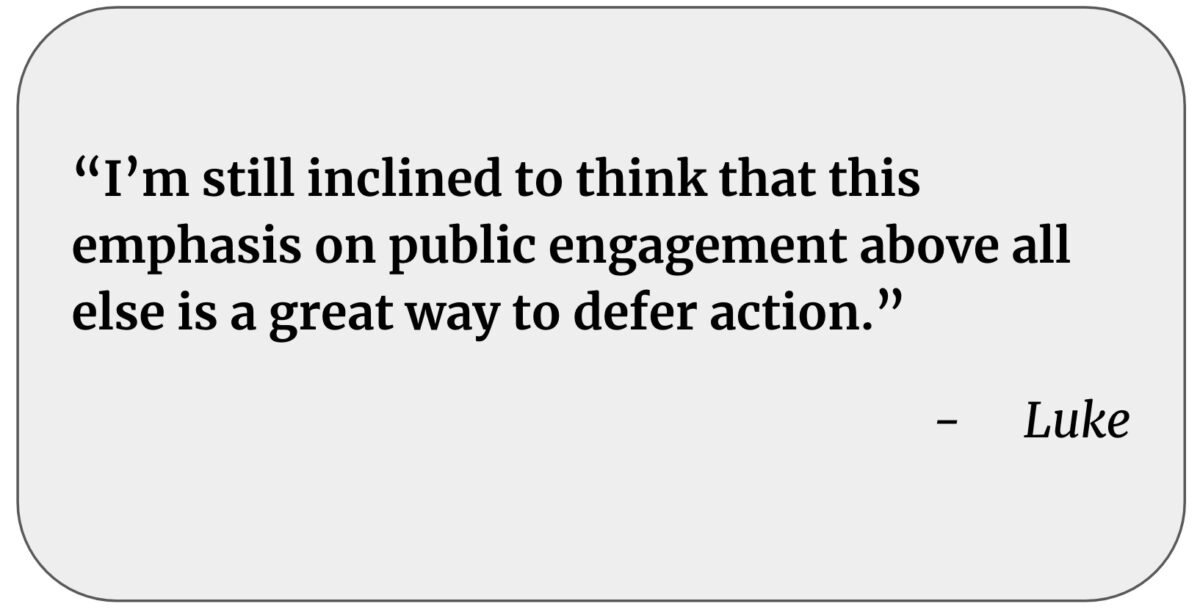Welcome to the Comment of the Week, where we highlight good comments in order to inspire more of them. You can help us choose our next one by replying with “comment of the week” to any comment you think deserves recognition. Please note: These selections are not endorsements.
Portland, the city where even public process has a public process.
Our article, PBOT advisory committee reform is underway, but participants have questions,
prompted a number of educated and informed comments.
A paragon of public process, from neighborhood associations to advisory committees to stakeholder committees to a class on training advocates (the PBOT/PSU transportation class), Portland puts Portlanders front and center.
But for what purpose?
That question came up early during a workshop last week on restructuring the city’s modal advisory committees: freight, bicycle and pedestrian. Judging from the feedback at the workshop, and from the quality of our comments on the topic, at the very least, one could say that Portland’s public processes produce a public very educated about transportation.
Luke’s comment expressed a thought that comes up regularly: They know what to do, why don’t they just do it? Because a lot of volunteer time goes into public participation, so many of us have put in the hours.
Here is what Luke wrote:
“I’m still inclined to think that this emphasis on public engagement above all else is, ultimately and most importantly for those who emphasize it, a great way to defer action. Think back to that (by now) infamous Streetsblog post from the consultant out of Boston going to Amsterdam and claiming Boston’s process was better because it “centered marginalized voices”…even though it’s much harder to get around Boston without a car than it is Amsterdam.
We already know what works for improving general mobility; all we need to do is look across the pond–at this point, either pond–to see it. Motorist voices’ need to be ignored, and those who claim that autocentric infrastructure and urban forms will work if we build them out enough are either ignorant or willfully lying.
Enough with the committees, the public outreach, the community surveys, the reform panels. Just stop building car-dependent suburban sprawl and stroads; stop widening highways. Build compact, walkable/bikeable/rollable towns and cities; nothing else will work without excluding the poor and the vulnerable, bankrupting us all, destroying the planet, and socially isolating us all.”
Luke’s comment can be found under the original post. Thank you Luke and everyone else for commenting.



